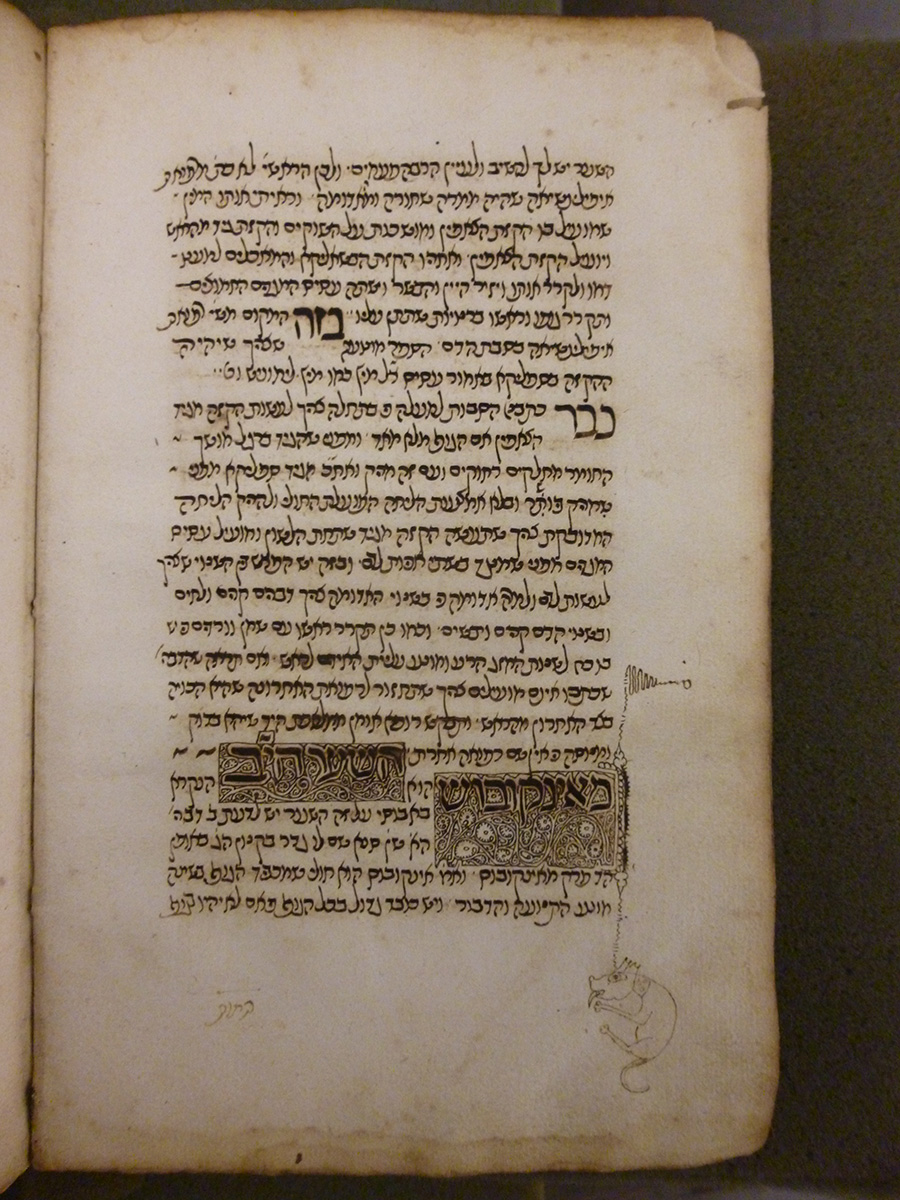By Michael A. Flannery, Professor Emeritus, Former Associate Dean for Historical Collections
University of Alabama at Birmingham
November 1999
 Marginalia from Rhazes' Al' Mansuri (Portugal, 1388)In the seventh and eighth centuries A.D. the disintegration of Greco-Roman civilization was complete and scientific inquiry thoroughly transferred to the Arab world. At this time, as historian George Sarton puts it, "The Arabs were standing on the shoulders of their Greek forerunners just as the Americans are standing on the shoulders of their European ones." Despite the European loss of cultural and scientific learning, the Arabs took inherited knowledge and made real and significant advances. One of the true leaders in that endeavor was al-Razi, generally referred to as Rhazes.
Marginalia from Rhazes' Al' Mansuri (Portugal, 1388)In the seventh and eighth centuries A.D. the disintegration of Greco-Roman civilization was complete and scientific inquiry thoroughly transferred to the Arab world. At this time, as historian George Sarton puts it, "The Arabs were standing on the shoulders of their Greek forerunners just as the Americans are standing on the shoulders of their European ones." Despite the European loss of cultural and scientific learning, the Arabs took inherited knowledge and made real and significant advances. One of the true leaders in that endeavor was al-Razi, generally referred to as Rhazes.
Rhazes' dates are not precisely known: some scholars such as William H. Brock give 850 to c. 923 A.D., while the historian/pharmacist Charles LaWall dates his birth as early as 841. Born near Teheran, Rhazes appears to have devoted his entire life to scientific inquiry and has nearly 250 written works to his credit. His Continens Rhazes (originally Kitab-al-hawi) presents a complete review and interpretation of ancient Greek medicine and presents one of the earliest descriptions of measles and smallpox. Perhaps his most famous work, however, is the Secret of Secrets in which he gives systematic attention to basic chemical operations important to the history of pharmacy. Indeed, Brock calls it "a straightforward manual of chemical practice." In this work, Rhazes classified materials; described distillation, sublimation, and calcination processes; and established procedures for purification, separation, and the mixing of substances. By following Rhazes' instructions Europeans were able to prepare pure sulfuric and other important acids. Of course, it would be incorrect to view even Rhazes' chemistry as anything approximating our own; any review of the writings of Paracelsus (1493-1541) on the subject centuries later shows how far scientific chemistry had to go to liberate itself from mystery and superstition. That said, Rhazes' writings on the subject did represent substantive advances in the field.
In addition to the compilation of texts, Rhazes contributed to the early practice of pharmacy in various other ways. For example, he is said to have introduced mercurial ointments into the Western world. Also, Rhazes developed apparatus used in apothecaries up through the nineteenth and early twentieth centuries, such as mortars and pestles, flasks, spatulas, beakers, phials, and glass vessels. Later investigators, like the great physician Avicenna (980-1037), would carry Rhazes' work forward in developing simple and composite drugs.
In today's world, we tend to see scientific advance as the product of great movements, massive grant-funded projects, and larger-than-life socio-economic forces. It is easy to forget, therefore, that many contributions stemmed from the individual efforts of scholars like Rhazes. Indeed, pharmacy can trace much of its historical foundations to the singular achievements of this ninth-century Persian scholar.
